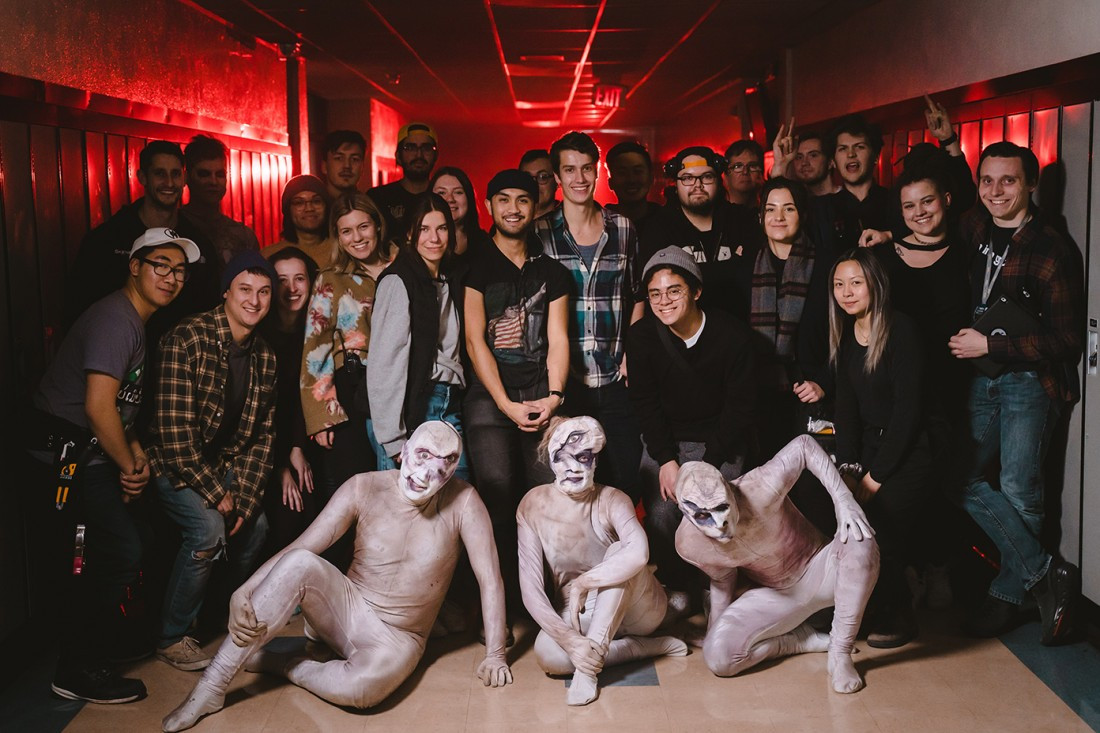The festival circuit
Film fests transition to digital streaming due to COVID-19
Despite the cancellation of many Manitoban summer festivals, Gimli Film Festival (GFF) will still go ahead online.
“We consider ourselves lucky,” GFF festival director Aaron Zeghers says. “Unlike a lot of other beloved Manitoba festivals, we’re able to adapt and offer our programming virtually.”
Hot Docs Festival, a documentary film festival based in Toronto that was set to open April 30, also had to shift its programming.
“We postponed the festival in mid-March, and, at the time, we were hoping to be able to get back into the cinema,” Shane Smith, director of programming for Hot Docs Festival, says. “That was always the plan, maybe (in) late summer, but then as the situation evolved, we realized we wanted to find alternative ways to get these films.
“The films had been selected and finalized. We were actually in the meeting room putting Post-it notes on the wall with (showtimes), so we were well on the way when we had to stop. But we knew (by) early April that we wanted to find a way to get these films to audiences.”
The festival will now open on May 28 on the Hot Docs website to a global audience. GFF will do the same from July 22 to 26, when they were originally going to open the festival.
Both festivals offer on-demand films for pass or ticket holders on a Netflix-style streaming platform, as well as free additional content. Hot Docs at Home, a partnership with CBC, offers some Hot Docs films on the CBC Gem streaming service. Hot Docs’ prerecorded Q-and-A will run after some films are screened, while GFF is running a free livestream with films, Q-and-As and panels to their website.
“That allows people to interact in real time to ask questions to filmmakers. (Paid participants will also get to) interact with a masterclass guest,” Zeghers says.
The GFF pass offers access to 20 film programs, but “we are barely going to be breaking even and not actually profiting off that pass,” Zeghers says. “We’re a small little festival trying to give back to the community, and we understand that people are struggling right now, and we’re trying to make those passes affordable”
Even so, GFF will still offer masterclasses and their annual The Future is Female* Mentorship Program. The program, which usually connects 50 to 60 women, trans and non-binary participants with about 10 mentors over the course of a day, will expand to the range of a whole week. Participants will also have one-on-one sessions with mentors, which have not been offered before.
The reach of both festivals has greatly expanded with the transition.
“We’re opening up the possibilities for people who wouldn’t be able to come to Toronto for the festival to be able to access and watch these incredible films,” Smith says. “A lot of festivals, including us as well, are going to have some kind of hybrid of live and digital events and activities moving forward.”
GFF will test out their new infrastructure in the months ahead with Manitoba Movie Night. On the 20th of every month from now until their 2021 festival, they will livestream a classic Manitoba-made movie to their website as a part of Manitoba 150.
But even with these new possibilities, festival organizers and filmmakers will miss being there in person.
“Nothing replaces the community and communal experience of a cinema screening, that magic alchemy that happens when the audience is not only seeing the documentary but also the people who made the documentary and the people who appear in it,” Smith says. “That’s the magical moment and the reward for the filmmakers, but also for us as the programmers. It’s part of the job that we love and look forward to every year.”
The Hot Docs Festival opens on May 28, with films to stream and rent on their website as well as through CBC Gem. The Gimli Film Festival runs from July 22 to 26.
Note: The Uniter is partnered with the Gimli Film Festival through an in-kind media sponsorship. This does not affect our editorial content or coverage of the festival.
Published in Volume 74, Number 25 of The Uniter (May 1, 2020)






